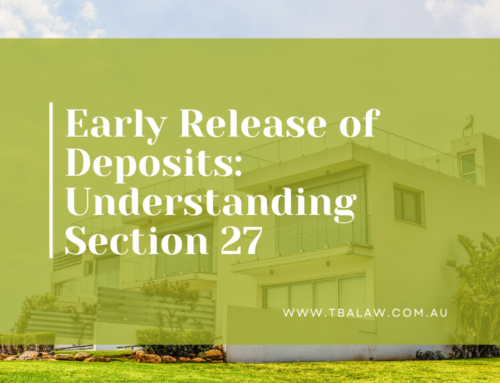Stamp Duty on Land Transfers
All transfers of land, including gifts, attract stamp duty. Stamp duty is calculated on the greater of the price paid (consideration) or the market value. Water entitlements sold with land are non-dutiable, so stamp duty does not apply to water.
There are exemptions and concessions on the payment of stamp duty when land is transferred, and I have detailed some of the circumstances when an exemption or concession applies:
Pension Exemption or Concession
If you are the holder of a Health Care Card, a Pension Concession Card or Commonwealth Seniors Card you can apply for a full exemption from stamp duty if the price is under $330,000, or a concession if the price is under $750,000. To be eligible, you cannot have received the Pension Exemption or Concession on another property, and you must be intending to live at the property.
For example, Jane is on an aged pension. She bought her previous home with her husband. They have since separated and Jane is downsizing to a unit. She is buying the unit for $300,000. She has not received a pension exemption or concession before, and intends to live in the unit she is buying. Jane would be eligible for a full stamp duty exemption.
Deceased Estates Exemption
Transfers of land from the executor under a Will (the legal personal representative) to a beneficiary does not incur stamp duty.
Where a Will establishes a testamentary trust, the exemption on payment of stamp duty also applies where the legal personal representative transfers land to the trustee of the testamentary trust. The later transfer from the trustee of the trust to the beneficiary may be dutiable, unless another exemption applies.
For example, Jane dies and leaves her unit solely to her daughter Billie, since she helped her son Bob buy his own home whilst she was alive. Her executors under her Will are Billie and Bob together. The unit transfers to Billie and Bob as Jane’s legal personal representatives, and then they transfer it to Billie, as beneficiary, without incurring any stamp duty on these transfers.
Family Farms
The transfer of a farm may be exempt from stamp duty where the land is primary production land and the person receiving the land is a relative of the original owner. The transfer also must be a genuine arrangement, and not a scheme to take advantage of the stamp duty exemption.
For example, John has a block where he runs some sheep. His son, Bob, has been taking more and more interest in the farm and the sheep. John wants to give Bob the block, so that John’s assets are reduced. John would also prefer to give Bob the block before he dies, in case there is a challenge to his Will. If John does transfer the block to Bob, this could be done without incurring stamp duty.
However, John should be aware that if he applies for an aged pension, the block that he gifted will be considered a “deprived asset”. Centrelink could include the block as an asset of John’s for another 5 years. So despite having giving the block away, he would still only be entitled to a part pension.




